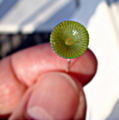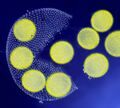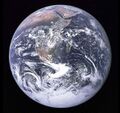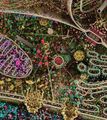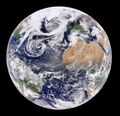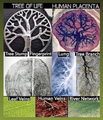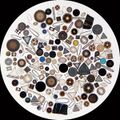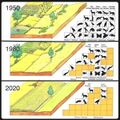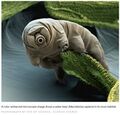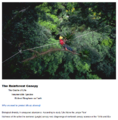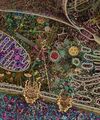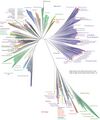Category:Microorganism: Difference between revisions
Siterunner (talk | contribs) No edit summary |
Siterunner (talk | contribs) No edit summary |
||
| (8 intermediate revisions by the same user not shown) | |||
| Line 1: | Line 1: | ||
[[File:Featured.png]] | |||
:: https://www.greenpolicy360.net/mw/images/Tree_of_Life_nmicrobiol201648-f1_via_Nature.jpg | |||
Look closely.... very closely, very, very closely | |||
Maybe start here -- https://en.wikipedia.org/wiki/Microcosmos_(film) | |||
and then consider how '''[[It's All Related]]''' | |||
Earth system science, dynamics of change... | |||
Scientists’ warning to humanity: microorganisms and climate change | |||
* https://www.nature.com/articles/s41579-019-0222-5 | |||
''In the Anthropocene, in which we now live, climate change is impacting most life on Earth. Microorganisms support the existence of all higher trophic life forms. To understand how humans and other life forms on Earth (including those we are yet to discover) can withstand anthropogenic climate change, it is vital to incorporate knowledge of the microbial ‘unseen majority’. We must learn not just how microorganisms affect climate change (including production and consumption of greenhouse gases) but also how they will be affected by climate change and other human activities. This Consensus Statement documents the central role and global importance of microorganisms in climate change biology. It also puts humanity on notice that the impact of climate change will depend heavily on responses of microorganisms, which are essential for achieving an environmentally sustainable future.'' | |||
| Line 19: | Line 38: | ||
Earth may be home to | Earth may be home to a trillion species? -- http://www.archaeologynewsnetwork.blogspot.com/2016/05/earth-may-be-home-to-one-trillion.html | ||
:"Earth could contain nearly 1 trillion species, with only one-thousandth of 1 percent now identified" | :''"Earth could contain nearly 1 trillion species, with only one-thousandth of 1 percent now identified"'' | ||
:Study results suggest that actually identifying every microbial species on Earth is an almost unimaginably huge challenge. To put the task in perspective, the [http://www.earthmicrobiome.org/ Earth Microbiome Project] -- a global multidisciplinary project to identify microscope organisms -- has so far cataloged less than 10 million species. | :''Study results suggest that actually identifying every microbial species on Earth is an almost unimaginably huge challenge. To put the task in perspective, the [http://www.earthmicrobiome.org/ Earth Microbiome Project] -- a global multidisciplinary project to identify microscope organisms -- has so far cataloged less than 10 million species.'' | ||
"Of those cataloged species, only about 10,000 have ever been grown in a lab, and fewer than 100,000 have classified sequences... this leaves 100,000 times more microorganisms awaiting discovery -- and 100 million to be fully explored. Microbial biodiversity, it appears, is greater than ever imagined." | :''"Of those cataloged species, only about 10,000 have ever been grown in a lab, and fewer than 100,000 have classified sequences... this leaves 100,000 times more microorganisms awaiting discovery -- and 100 million to be fully explored. Microbial biodiversity, it appears, is greater than ever imagined."'' | ||
| Line 31: | Line 50: | ||
[[Category:Anthropocene]] | |||
[[Category:Microbiology]] | [[Category:Microbiology]] | ||
[[Category:Nature]] | |||
Latest revision as of 17:11, 12 February 2024
Look closely.... very closely, very, very closely
Maybe start here -- https://en.wikipedia.org/wiki/Microcosmos_(film)
and then consider how It's All Related
Earth system science, dynamics of change...
Scientists’ warning to humanity: microorganisms and climate change
In the Anthropocene, in which we now live, climate change is impacting most life on Earth. Microorganisms support the existence of all higher trophic life forms. To understand how humans and other life forms on Earth (including those we are yet to discover) can withstand anthropogenic climate change, it is vital to incorporate knowledge of the microbial ‘unseen majority’. We must learn not just how microorganisms affect climate change (including production and consumption of greenhouse gases) but also how they will be affected by climate change and other human activities. This Consensus Statement documents the central role and global importance of microorganisms in climate change biology. It also puts humanity on notice that the impact of climate change will depend heavily on responses of microorganisms, which are essential for achieving an environmentally sustainable future.
Trillions of (micro) species -- https://cosmosmagazine.com/life-sciences/earth-home-trillion-species
Microbial 'new' Tree of Life -- http://www.nytimes.com/2016/04/12/science/scientists-unveil-new-tree-of-life.html
Microbes on land, in the soil -- http://www.greenpolicy360.net/w/Category:Soil
Microbes-Cyanobacteria in the oceans, Blue-Green life -- www.tinybluegreen.com / http://www.greenpolicy360.net/w/TinyBlueGreen
Microbiomes at risk -- http://www.greenpolicy360.net/w/Microbiomes_at_Risk
Earth may be home to a trillion species? -- http://www.archaeologynewsnetwork.blogspot.com/2016/05/earth-may-be-home-to-one-trillion.html
- "Earth could contain nearly 1 trillion species, with only one-thousandth of 1 percent now identified"
- Study results suggest that actually identifying every microbial species on Earth is an almost unimaginably huge challenge. To put the task in perspective, the Earth Microbiome Project -- a global multidisciplinary project to identify microscope organisms -- has so far cataloged less than 10 million species.
- "Of those cataloged species, only about 10,000 have ever been grown in a lab, and fewer than 100,000 have classified sequences... this leaves 100,000 times more microorganisms awaiting discovery -- and 100 million to be fully explored. Microbial biodiversity, it appears, is greater than ever imagined."
~
Subcategories
This category has the following 5 subcategories, out of 5 total.
B
E
F
O
S
Pages in category "Microorganism"
The following 16 pages are in this category, out of 16 total.
Media in category "Microorganism"
The following 84 files are in this category, out of 84 total.
- A Planet Citizen View.png 799 × 1,241; 1.64 MB
- A root and its mycorrhizal fungus surroundings.PNG 315 × 382; 236 KB
- About Baselines and Change.png 592 × 312; 33 KB
- Acetabularia.png 300 × 303; 0 bytes
- Algae release -nikon-small-world-competition-2017-winners.jpg 640 × 576; 89 KB
- All species day with homo sapien in Santa Fe .jpg 640 × 369; 98 KB
- Blue Marble photo taken by the crew of Apollo 17 (1972).jpg 642 × 605; 129 KB
- Bucky Trimtab.jpg 348 × 336; 88 KB
- California's kelp forests and coastal biodiversity diminished.png 532 × 754; 307 KB
- Canary - 1.jpg 448 × 901; 144 KB
- Canary - 2.png 446 × 531; 264 KB
- Cellular Landscape.jpg 300 × 336; 44 KB
- Cyanobacteria Prochlorococcus worldmapping MIT.jpg 473 × 321; 60 KB
- Dirt, soil, worms, good.png 700 × 399; 695 KB
- Earth Day - DSCOVR-EPIC 2019.jpg 800 × 772; 150 KB
- Earth Day 2022 - Act up.png 457 × 370; 155 KB
- Earth Emoji.png 50 × 50; 2 KB
- Earths rotation as we roll thru space.jpg 800 × 529; 69 KB
- Entangled Life by Merlin Sheldrake.jpg 800 × 306; 70 KB
- Food-Forests-Living-poster by Molly Danielsson.jpg 800 × 545; 113 KB
- Forest Moss and unseen 'tiny little ones'.PNG 800 × 1,104; 1.53 MB
- Global Forest Watch top page 2014.png 800 × 416; 350 KB
- Golden Spiral from M.png 683 × 600; 487 KB
- Golden spiral, Fibonacci spiral, nature at work.jpg 755 × 883; 160 KB
- Google Earth Engine.png 448 × 165; 45 KB
- GP360 tagcloud2 m.png 531 × 324; 132 KB
- Green Networking @GreenPolicy360.net.png 788 × 604; 764 KB
- Hand and Leaf w Life Lines.jpg 720 × 900; 41 KB
- Human history, as an 800 page book.jpg 799 × 1,112; 148 KB
- In Love with Earth.jpg 328 × 499; 15 KB
- Kelp NOAA credit Robert Schwemmer.jpg 450 × 299; 193 KB
- Laudate Deum - To All Peoples of Good Will - On the Climate Crisis.png 767 × 601; 112 KB
- Laudato Si conf-July 2018.png 590 × 318; 120 KB
- Laudato Si conference-July 2018.png 336 × 424; 267 KB
- Laudato Si Movement Invitation.jpg 633 × 480; 66 KB
- Laudato Si Movement.jpg 781 × 337; 40 KB
- Living Earth.png 441 × 183; 106 KB
- Moral issue-biodiversity protection.jpg large.png 752 × 598; 606 KB
- Mushroom life in the forest.png 640 × 458; 626 KB
- Mushrooms collected on a salish walk by jill bliss.jpg 600 × 600; 143 KB
- NASA has a new mission... against Methane.png 800 × 576; 681 KB
- Nature Us.png 480 × 557; 626 KB
- New Species Discovered-2018.png 800 × 212; 508 KB
- Phyto the Green Machine.png 640 × 465; 431 KB
- Phytoplankton - the foundation of the oceanic food chain 560x396.jpg 560 × 396; 101 KB
- Phytoplankton - the foundation of the oceanic food chain.jpg 3,972 × 2,676; 5.44 MB
- Phytoplankton kamchatka NASA.jpg 720 × 360; 49 KB
- Phytoplankton.jpg 600 × 600; 97 KB
- PlanetCitizen - Your Moment on Earth.jpg 650 × 625; 80 KB
- Plankton - phytoplankton.jpg 1,200 × 859; 955 KB
- Plankton story - New Yorker - Oct 2021.jpg 619 × 737; 125 KB
- Planktonbluegreen tinyones.jpg 640 × 320; 99 KB
- Prochlorococcus blue-green.png 501 × 273; 86 KB
- Prochlorococcus blue-green.tiny ones.png 505 × 277; 130 KB
- Prochlorococcus featured at GreenPolicy360.png 497 × 642; 42 KB
- Protect the Natural World.jpg 800 × 345; 78 KB
- Remembering E.O. Wilson and Thomas Lovejoy.jpg 640 × 327; 56 KB
- Seagrass florida keys-noaa.jpg 700 × 267; 65 KB
- Secret Life of Rivers.png 800 × 451; 800 KB
- Secrets of the Rainforest some of Don's orig publications w SJS.jpg 395 × 580; 62 KB
- Shifting Baseline Syndrome - threats to ecosystems biodiversity.png 431 × 534; 322 KB
- Shifting Baselines 2.jpg 600 × 600; 140 KB
- Soil and mycelium mycorrhizal fungi network threads.png 600 × 800; 699 KB
- Soil biodiversity.jpg 650 × 409; 230 KB
- Soil is the root stuff.jpg 483 × 960; 97 KB
- Speed and Scale Action Plan.png 550 × 867; 132 KB
- Speed and Scale Poster.png 490 × 772; 101 KB
- Steven J Schmidt, May 2023.png 363 × 484; 383 KB
- Tardi1.jpg 470 × 264; 28 KB
- Tardigrade.jpg 448 × 431; 47 KB
- The Daily Puffin.png 768 × 800; 766 KB
- The Hidden Universe - Adventures in Biodiversity.png 768 × 959; 365 KB
- The Rainforest Canopy, the Richest Biosphere on Earth.png 745 × 757; 730 KB
- Tiny Little Ones... Inner Life of a Cell.jpg 679 × 817; 159 KB
- Tiny Plankton - via The Guardian.jpg 591 × 181; 59 KB
- Tom Lovejoy on Biological Diversity.png 594 × 180; 48 KB
- Tom Lovejoy Planet Citizen.png 594 × 257; 25 KB
- Tree of Life nmicrobiol201648-f1 via Nature.jpg 695 × 833; 98 KB
- Tree of Life on Hand.jpg 336 × 448; 70 KB
- Vorsorgeprinzip at GreenPolicy360 - sjs.png 611 × 758; 164 KB
- We are all crew.jpg 448 × 181; 17 KB
- Wildlife silence. sound ecologists warning.jpg 640 × 232; 63 KB
- You are here on the cladogenetic tree m.jpg 545 × 521; 73 KB




